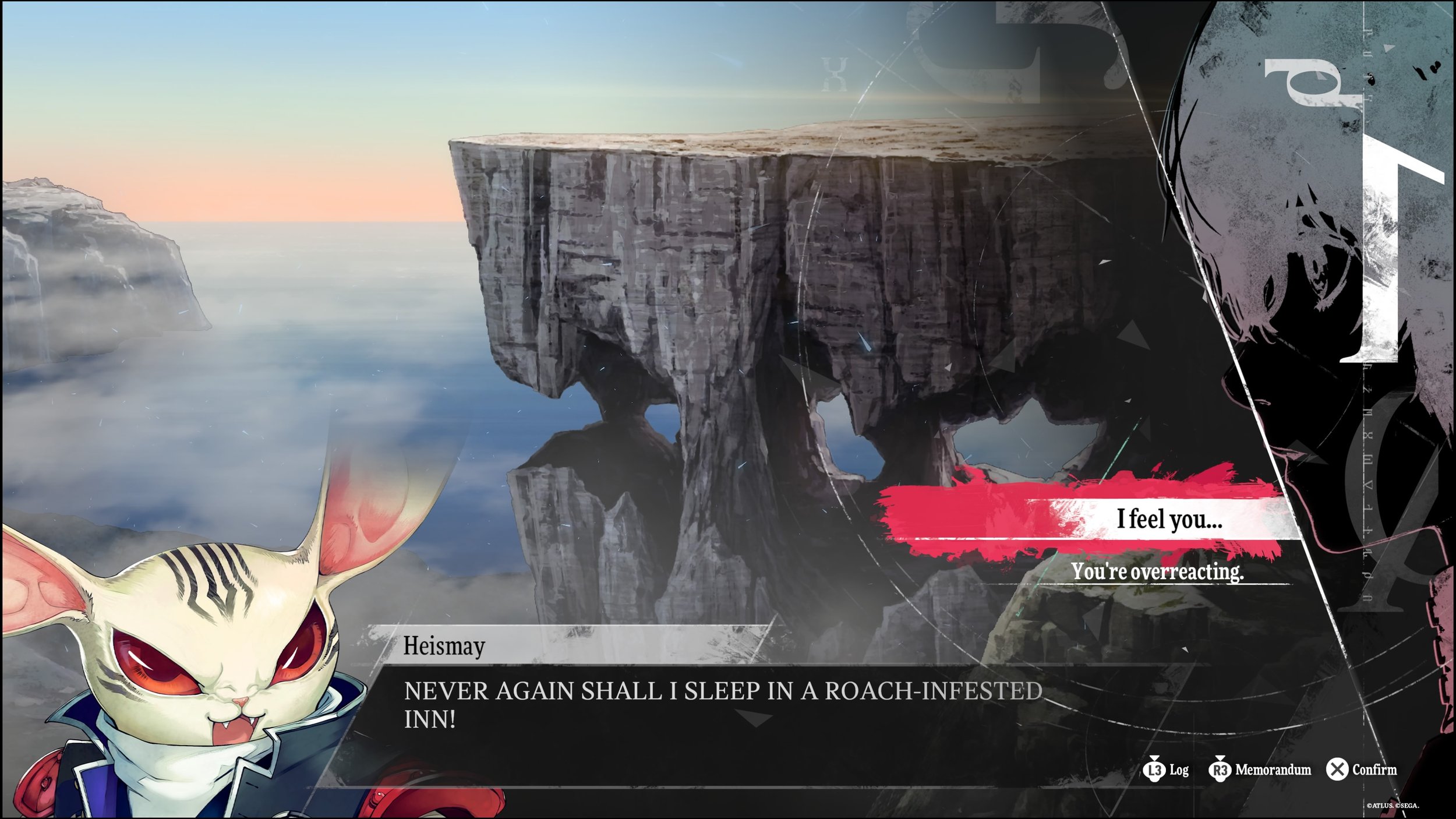Metaphor: Refantazio Review in Progress - The Journey That Keeps Evolving
/READ: This is part two of our review in progress of Metaphor: ReFantazio. Check out the first part of my review in progress for a more complete impression of what I think of the game.
Now at the 70-hour mark, nothing has changed—Metaphor continues to captivate. The most significant improvement I’ve noticed is how well Studio Zero spaces out the game’s features to keep everything fresh and evolving. One of the most impressive aspects of Metaphor is how Studio Zero consistently introduces new features, keeping the gameplay experience fresh despite the game’s length. Whether it’s new party members, Archetypes, or mechanics that change how you approach dungeons and combat, there’s always something evolving to prevent any sense of stagnation. The growing character customization system and dynamic battle mechanics continually keep things exciting and ensure no playthrough feels repetitive.
One example is the ability to swap party members before or during the battle as my overall playable party size has increased over the total amount of characters available during a fight (four), and that feature happened roughly in the 40-hour mark. It may sound basic but this simple addition changed how I approached dungeons as I can reserve certain characters to come in either during a boss battle or when I need to abuse a certain weakness. It also makes MP management slightly easier as I can swap out a character low on MP with one fresh and ready to go.
This flexibility extends to how you build and customize your party. Archetypes have evolved versions, and I’ve unlocked unique ones, giving me more options to experiment with party compositions. I’ve built specialized teams—one focused on elemental damage, another on physical frontline attacks, and even a group geared for farming and stealing items. The system grows with you, always offering new ways to engage with the game.
The Journey is Part of the Experience
Metaphor also stands out for its scale. Unlike Persona games, which tend to keep you in a single city or two, Metaphor sends your party on a full-scale journey across different locations and cities. As your travels progress, you gain access to a Gauntlet Runner, your transportation and mobile base of operations. These trips can take days, and during travel, you’re able to do a range of activities on board—whether it’s reading to improve the protagonist’s traits, bonding with a party member, or handling chores.
The more I spend time with the game, the more cracks start to show, though nothing that major to detract a player from the overall experience. The most notable and consistent flaw is the dungeon level design as most dungeons are somewhat identical and devoid of being lively. It’s just dull corridors and open spaces with monsters roaming about. There are chests out or reach due to a locked gate but most of the time your way to the treasure is a small tunnel you can crawl through almost 90% of the time. This is the only form of repetitive nature that’s found in Metaphor as the dungeon you did a few hours ago has some similarities to the one you’re about to do in a few hours.
As for the story, it hasn’t dropped to the point that I felt like I would prefer to press the skip button. Every Bond segment with a character has captured my attention, and the main story is still slowly building up to something bigger in scale that has retained my interest as character growth and new revelations are being seen as I move forward. The writing, voice acting, and even cutscenes are bringing the whole narrative home. Hopefully, the story doesn’t lead to a downward spiral toward the end but at this pace, it’s very unlikely.
I finally feel this fantasy journey coming to an end, and despite how much I've played, I’m surprised by how much I want to stay in this world. It’s captivating and refreshing, and feels like this is the game the Persona team has wanted to create for a long time—a chance to stretch their creative muscles, exploring beyond their comfort zone while keeping the signature concepts that have made the Persona franchise beloved worldwide.
As I near the end of this journey, another week with Metaphor: ReFantazio will be enough for a final verdict. But from everything I’ve experienced so far, it’s clear Metaphor is leaving a lasting mark.








SEGA and Ryu Ga Gotoku Studios put a ton of love and care into Yakuza Kiwami 2, and it runs flawlessly on Switch 2. If you’re like me and itching for a reason to take a plunge into the Yakuza universe, there’s no better time than the present.